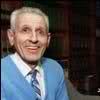- Welcome to Cook'd and Bomb'd.
-
 Manor Lords - Medieval city...
by Cuellar
Manor Lords - Medieval city...
by Cuellar
[Today at 12:33:05 AM] -
 Perfect sub 1 minute songs...
by Ron Maels Moustache
Perfect sub 1 minute songs...
by Ron Maels Moustache
[Today at 12:31:38 AM] -
 Bits of British LE/low cultural...
by Blumf
Bits of British LE/low cultural...
by Blumf
[Today at 12:28:19 AM] -
 The second thread of your...
by machotrouts
The second thread of your...
by machotrouts
[Today at 12:27:27 AM] -
Your Spectrevision Feature... by McDead
[Today at 12:15:29 AM] -
 Richie Sunak - The Decline...
by idunnosomename
Richie Sunak - The Decline...
by idunnosomename
[Today at 12:08:28 AM] -
 I'm an artist therefore I...
by Ferris
I'm an artist therefore I...
by Ferris
[Today at 12:08:24 AM] -
 Is the forum very slow for...
by Ferris
Is the forum very slow for...
by Ferris
[Yesterday at 11:58:06 PM] -
 News at Ten incident with...
by Dimbleby
News at Ten incident with...
by Dimbleby
[Yesterday at 11:46:27 PM] -
 Trans Mania: Graham Linehan...
by idunnosomename
Trans Mania: Graham Linehan...
by idunnosomename
[Yesterday at 11:39:01 PM]
Members
 Total Members: 17,826
Total Members: 17,826 Latest: skinnylike
Latest: skinnylike
Stats
 Total Posts: 5,585,763
Total Posts: 5,585,763 Total Topics: 106,775
Total Topics: 106,775 Online Today: 885
Online Today: 885 Online Ever: 3,311
Online Ever: 3,311- (July 08, 2021, 03:14:41 AM)
Users Online
 Users: 57
Users: 57 Guests: 804
Guests: 804 Total: 861
Total: 861 Grunt Work
Grunt Work Evil Knevil
Evil Knevil machotrouts
machotrouts Adey
Adey benjitz
benjitz JuggaloBoi420
JuggaloBoi420 Cuellar
Cuellar Gonk
Gonk earl_sleek
earl_sleek Kelvin
Kelvin Cold Meat Platter
Cold Meat Platter Ron Maels Moustache
Ron Maels Moustache Catalogue Trousers
Catalogue Trousers Blumf
Blumf biggins chris
biggins chris Juan K Perros
Juan K Perros shennners
shennners MrMealDeal
MrMealDeal notcherhorowitz
notcherhorowitz Underturd
Underturd Severai
Severai Peter St. John
Peter St. John Deanjam
Deanjam Memorex MP3
Memorex MP3 oggyraiding
oggyraiding Poobum
Poobum thugler
thugler Dog Botherer
Dog Botherer TheDreamIsOver
TheDreamIsOver McDead
McDead frajer
frajer lankyguy95
lankyguy95 DelurkedToHelp
DelurkedToHelp Bentpitch
Bentpitch ProvanFan
ProvanFan Mr Farenheit
Mr Farenheit mikerus
mikerus Petey Pate
Petey Pate Minami Minegishi
Minami Minegishi KindaSorta
KindaSorta HMS Beanspiller
HMS Beanspiller Ted_Dibiase
Ted_Dibiase Beelog
Beelog BJBMK2
BJBMK2 Pete23
Pete23
User actions

